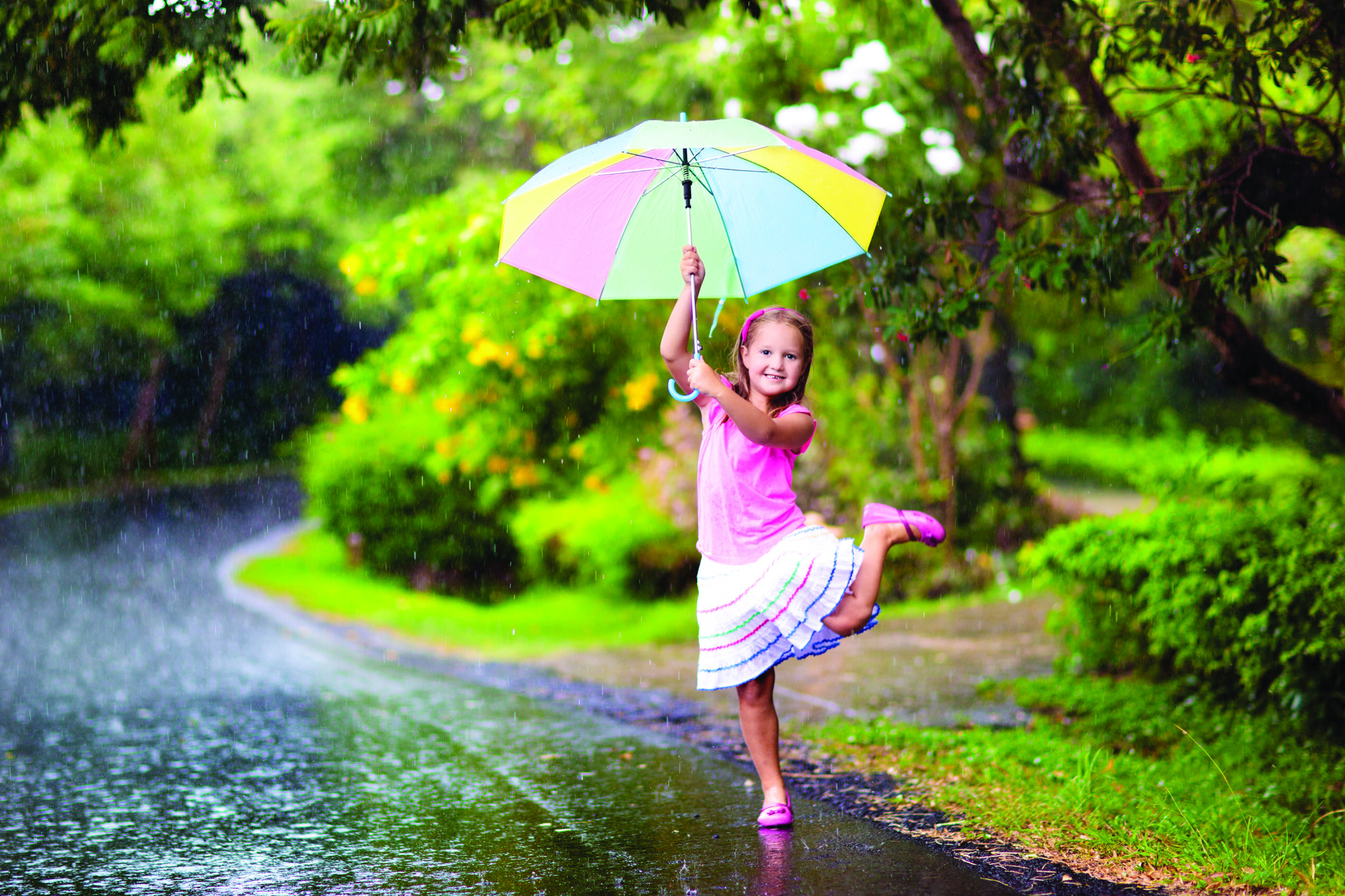Dance in the Sun, Cry in the Rain
By Avery Walker

When I was a child, my favorite thing to do during a good rainstorm was to run outside and dance between the drops of falling water. I found a simple joy in raising my face to the clouds, feeling the unpredictable splashes of cold water against my skin. I had no care for my soaked clothes or perplexed neighbors, indulging in the freedom from worry that goes hand in hand with childhood.
As I have grown older, however, rainy days bring with them a sort of melancholy feeling. A time of reflection, and a reminder that life is not always sunshine and warmth. Sometimes we are made to feel that overcoming always looks like dancing in the rain. That we should be able to disregard feelings of sadness, the same way I disregarded the feeling of wet clothes and hair as a child and feel only the thrill of living. Though it is certainly true that we can find joy in the midst of sadness, it is also true that we were created to experience a full range of emotions.
The book of Ecclesiastes tells us that there is a time and a season for everything. There will be times for laughing, and times for crying. Times where dancing is the right response, and times when respectful mourning feels more appropriate. There are moments when it is important for us to consider the realities of both life and death, peace and war, companionship and solitude
Although wallowing in our problems with a sense of hopelessness is certainly not recommended, always forcing ourselves to put on a happy face and ignoring our feelings of sadness can not only have long term emotional effects, but also physical ramifications. Studies have shown that consistently suppressing negative emotions can lead to things like memory loss, high blood pressure, anxiety, and emotional instability. If left unchecked, suppressed emotions can stress the body to the point of contributing to the development of heart disease, diabetes, and other debilitating conditions. Sometimes, holding something in for too long can even result in an emotional outburst or breakdown that is far more damaging than a good cry or an honest conversation would have been.
So how do we find the balance between feeling our feelings and living a joyful life of victory over trials? The answers come in the form of acceptance and perseverance. We may never know the reason that bad things happen to us or to the people we care about. Personally, I tend to get caught up in regret or guilt, thinking of all the ways I might have prevented bad things from happening if I had only been more perceptive or more careful. I would caution that this is the wrong way to feel grief. Processing sadness in a healthy way must include coming to a point where we accept that the past cannot be changed and absolve ourselves of guilt or responsibility for what has happened. This might mean forgiving yourself or someone else for a wrongdoing, or simply taking the weight off your shoulders concerning things that are outside the realm of human control. It is during this process where our tears are fruitful, where our hearts are poured out within the safety of solitude or the arms of loved ones. We are told in Isaiah that there is a God who wants to hold your pain and grief, and who feels them as deeply as you do. He does not expect you to ignore that pain, but to share it with Him. This is the time when we cry in the rain, knowing that the sun is promised to return.
As the storm of sadness passes, it is perseverance which reminds us that the clouds will eventually break. Psalm 30:5 is full of hope when it promises that weeping may endure through the night, but joy will come with the morning. As long as we live and breathe, there is hope, and that hope is not unfounded. Although not always, many times we can look back on trials from the distance of passing time and see how they made us stronger people or allowed us to comfort someone else who was suffering in a similar way. When we have cried out all our tears, it becomes time to look for the moments of rejoicing. Just as the world glistens after the rain, life can become more vibrant as we learn to value the moments of happiness we are afforded. Simple things become brighter, like the hug of a loved one or the sound of a bird singing. When we are intimately acquainted with the feeling of crying in the rain, the times when we are able to dance gleefully in the sun become infinitely more precious.
